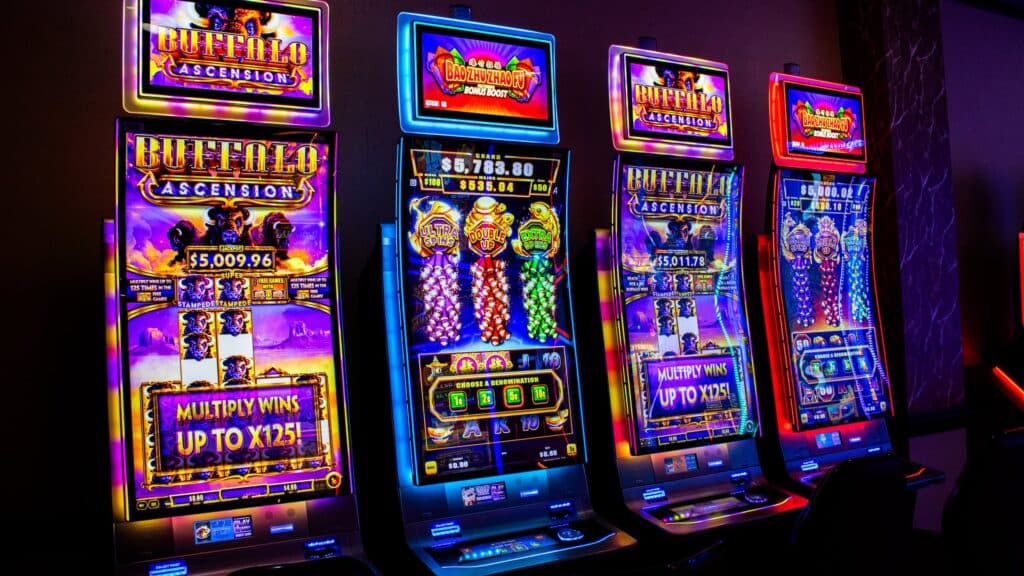The world of casino games is often filled with excitement, anticipation, and the thrill of winning or losing. As players spin the reels, place their bets, or strategize their moves, one question frequently arises: How much of it is due to luck, and how much is attributed to skill? The relationship between luck and skill in casino games has been a topic of debate for decades, and understanding this balance is essential for both new and seasoned players. In this detailed guide, we’ll explore the roles of luck and skill, offering examples, calculations, and tips to help you improve your gaming experience.
Understanding Luck and Skill in Casino Games
Before diving into the specifics of various casino games, it’s crucial to define the concepts of luck and skill in the context of gambling. Both elements play significant roles in shaping the outcome of your casino experience, but their influence varies depending on the game you're playing.
What Is Luck in Casino Games?
Luck refers to the randomness of outcomes that cannot be predicted or controlled by the player. In gambling, luck is often seen as the primary driver of success. Whether it’s a lucky roll of the dice, a fortuitous spin of the roulette wheel, or a random card dealt in blackjack, luck can greatly influence the outcome.
Some games are purely luck-based, meaning the player's skills or strategies have little to no impact on the outcome. In these games, winning or losing is entirely dependent on chance. For instance, slot machines and lotteries are based purely on luck, where players have no control over the results.
What Is Skill in Casino Games?
Skill, on the other hand, refers to the player's ability to make decisions, use strategies, and apply knowledge to influence the outcome of the game. Skill-based games require players to learn specific strategies, understand probabilities, and make informed choices to improve their chances of winning.
In skill-based casino games, players can reduce the house edge and increase their chances of winning by applying skillful techniques. Examples of skill-based games include poker, blackjack, and baccarat, where players can make strategic decisions that directly affect the outcome of the game.
The Role of Luck in Casino Games
Luck plays a central role in several casino games, particularly those that involve random outcomes. Let's take a closer look at some of the most popular luck-based casino games.
1. Slot Machines
Slot machines are the epitome of a luck-based game. These games are powered by random number generators (RNGs), which ensure that each spin is independent and unpredictable. No matter how much experience a player has, the outcome of each spin is entirely determined by luck.
Even though players can choose the type of slot game (e.g., classic, video, or progressive), their chances of winning are always left to chance. However, understanding the game’s Return to Player (RTP) percentage and volatility can help players make more informed decisions about which slots to play, but it doesn’t impact the luck of the spin.
2. Roulette
Roulette is another iconic luck-based game. The spin of the wheel and the random bounce of the ball are all up to chance. While players can place different types of bets, such as betting on numbers, colors, or odd/even, the outcome is still determined by where the ball lands.
Roulette strategies like the Martingale system or the Fibonacci sequence may help players manage their bets, but they cannot change the fact that the game is ultimately determined by luck. The house edge (which varies depending on the version of roulette being played) will always remain the same.
3. Craps
Craps is a fast-paced dice game that heavily relies on luck. The outcome of each roll is determined by the dice, which are completely random. While players can bet on specific outcomes, such as a point or a pass line, the game itself doesn’t require skill beyond understanding how the bets work.
There are strategies to manage bets and reduce the house edge, but there’s no way for a player to predict the exact outcome of a dice roll. Winning or losing in craps is purely a matter of luck.
The Role of Skill in Casino Games
In contrast to luck-based games, skill-based casino games offer players a chance to influence the outcome through their decisions. These games require knowledge, strategy, and practice to master. Let’s explore some of the most popular skill-based casino games.
1. Poker
Poker is one of the most skill-intensive casino games, and it’s often considered a game of skill rather than luck. While luck does play a role in the short term (e.g., the cards dealt), skilled players can consistently outperform novices over the long run.
In poker, players must make decisions based on the strength of their hand, their position at the table, their opponents’ behavior, and the betting patterns. Bluffing, reading other players, and understanding odds are all essential skills for success in poker.
For example, if you're playing Texas Hold’em, knowing when to fold, raise, or call can make all the difference. Advanced players use mathematical models and strategies, such as pot odds and expected value, to guide their decisions.
2. Blackjack
Blackjack is another casino game that requires skill and strategy. The objective of the game is to have a hand value closest to 21 without going over. While the cards are dealt randomly, players can use a strategy called card counting to track the ratio of high cards to low cards remaining in the deck, giving them a slight advantage over the casino.
In addition to card counting, players can use basic strategy charts that dictate the best decisions based on the player's hand and the dealer’s upcard. For example, if you have a hand total of 16 and the dealer shows a 10, the basic strategy suggests that you should stand, as the dealer is more likely to bust.
3. Baccarat
Baccarat is a relatively simple card game that is often associated with high rollers. While the game itself is based on luck, skilled players can still make strategic decisions to increase their chances of winning.
One of the most popular strategies in baccarat is the "betting pattern" approach. Players observe the outcomes of previous hands and bet accordingly, either on the player’s hand, the banker’s hand, or a tie. While this strategy doesn’t change the fundamental luck-based nature of the game, it can help manage risk and maximize wins over time.
Luck vs. Skill: Which One Should You Focus On?
Now that we've explored the roles of luck and skill in various casino games, you might be wondering: which one should I focus on? The answer depends on the type of game you're playing and your personal preferences.
For Luck-Based Games:
- Accept that luck plays a big role: In games like slots, roulette, and craps, the outcome is largely determined by chance. The best you can do is manage your bankroll and enjoy the game for its entertainment value.
- Maximize your chances with smart choices: In games with a house edge, like roulette or blackjack, choosing specific bets (such as outside bets in roulette) can reduce your risk.
For Skill-Based Games:
- Invest in learning and practice: In games like poker, blackjack, and baccarat, your skill level directly impacts your chances of winning. Take the time to learn strategies and practice regularly to sharpen your skills.
- Focus on long-term success: Skill-based games offer the potential for long-term success, as experienced players can consistently outperform less skilled opponents.
Conclusion
In the world of casino games, both luck and skill play essential roles in shaping the outcome of your gameplay. Luck can heavily influence games like slots, roulette, and craps, while skill is crucial in games such as poker, blackjack, and baccarat. Understanding the balance between luck and skill can help you make better decisions, improve your strategies, and ultimately enhance your casino gaming experience.
Whether you're a beginner or an experienced player, remember that success in casino games is not solely determined by luck or skill alone. Instead, it's about enjoying the process, managing your bankroll wisely, and always playing responsibly.



